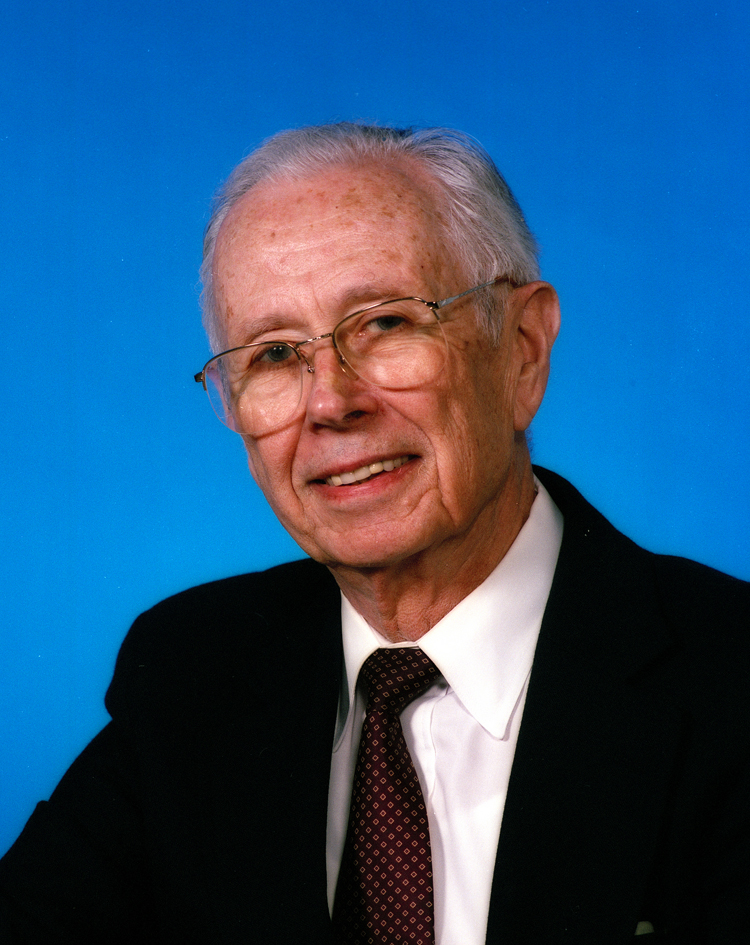Press Release
Alexander Kossiakoff, Guided Missile Pioneer and Former Director of The Johns Hopkins University Applied Physics Laboratory, Dies at 91
Mon, 08/08/2005 - 15:59
Dr. Alexander Kossiakoff, Chief Scientist, former Director of The Johns Hopkins University Applied Physics Laboratory, Laurel, Md., and pioneer in solid propellant rocket technology, who guided the development of the Navy's first guided missile systems, died August 6 from heart failure. He was 91.
Born in St. Petersburg, Russia in 1914, he and his parents took up residence in Seattle, Wash., in 1923. He earned a B.S. in chemistry from the California Institute of Technology (1936) and a Ph.D. in the same discipline from The Johns Hopkins University (1938).
In 1943, Dr. Kossiakoff left the faculty of The Catholic University to assist in establishing the Allegheny Ballistics Laboratory — a section of President Franklin D. Roosevelt's National Defense Research Committee created to improve American preparedness. Under Dr. Kossiakoff's direction the Allegheny Ballistics Laboratory developed solid propellant rockets — forerunners of the Navy's air defense missile boosters, and engines for submarine launched missiles.
In February 1946, he joined The Johns Hopkins University Applied Physics Laboratory, Laurel, Md., and led the Bumblebee Program, which designed and perfected the Terrier, Tartar and Talos radar-guided supersonic missiles for shipboard air defense. From 1948 to 1961, Dr. Kossiakoff served as APL's Assistant Director for Technical Operations. He became Associate then Deputy Director and was appointed the Laboratory's Director in 1969, serving in that role for more than 10 years. Under his leadership, the Laboratory developed advanced systems for radar, air defense, strategic communications, submarine operations and spacecraft to advance national security and space science.
In July 1980, Dr. Kossiakoff stepped down as APL Director and served as the Lab's Chief Scientist — a position he held until his death. He also still served as Chair of The Johns Hopkins Technical Management and Systems Engineering Programs at its Whiting School of Engineering, where he initiated and developed educational programs in technical management and systems engineering at the master's degree level and for in-house training. One of the schools largest graduate programs is managed at The Applied Physics Laboratory's Kossiakoff Conference and Education Center, which was named in his honor in 1983.
Dr. Kossiakoff was awarded the Department of Defense Medal for Distinguished Public Service in 1981 — the highest award that may be granted by the Department of Defense to an individual who is not an employee of the government. He also received the Navy Distinguished Public Service Award in 1958 — the highest honor the Navy can bestow upon a civilian, the Presidential Certificate of Merit (1948), and the Bureau of Naval Ordnance Development Award (1945). In 2004, he was awarded the prestigious Johns Hopkins University President's Medal.
Dr. Kossiakoff held two patents on search radar systems and was a member of the American Association for the Advancement of Science. He was a Fellow of the American Institute of Chemists and the International Council on Systems Engineering.
Survivors include his wife of 66 years, Arabelle Kossiakoff of Brookeville, Md.; a daughter, Tanya Schmieler, and son-in-law, Jeffrey Schmieler of White Oak, Md.; a son, Anthony, and daughter-in-law, Susan, of Chicago; and five granddaughters.
A private funeral for the family will be held Wednesday, August 10. A memorial tribute for Dr. Kossiakoff will be held some time in the future at The Applied Physics Laboratory. In lieu of flowers, the family asks that donations be made in his name to The Johns Hopkins University Whiting School of Engineering Systems Engineering Program, 144 New Engineering Building, 3400 N. Charles St., Baltimore, Md. 21218.
